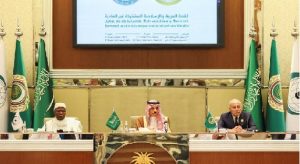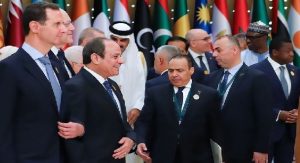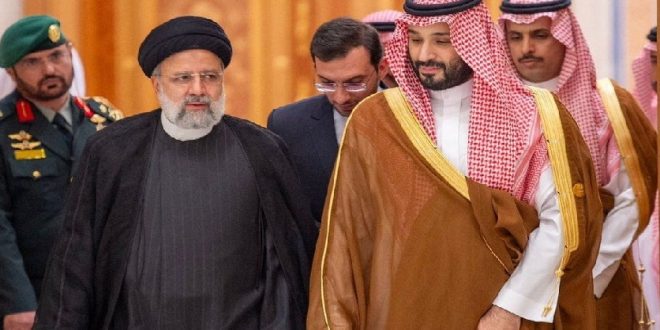16-11-2023
RIYADH: Hypocrisy, double standards and a failure to understand the region. These are the charges being levelled at the West, primarily the US, by leaders of 57 Arab and Muslim countries who convened at the weekend in the Saudi capital Riyadh.
 How is it, foreign ministers said to me, that the West slams Russia for killing civilians in Ukraine, yet, in their words, it “gives a green light to Israel to do the same in Gaza”?
How is it, foreign ministers said to me, that the West slams Russia for killing civilians in Ukraine, yet, in their words, it “gives a green light to Israel to do the same in Gaza”?
In the luxurious surroundings of Riyadh’s Ritz-Carlton hotel, amid giant floral bouquets and glittering chandeliers, and a world away from the shattered landscape of Gaza, princes, presidents and prime ministers met for the Joint Arab Islamic Extraordinary Summit.
Blame for the war and the destruction of lives and property was heaped unilaterally on Israel and its supporters. No-one criticised Hamas for its 7 October raid into southern Israel that killed 1,200 people and saw some 240 taken hostage, triggering the massive military retaliation. Israel, said the secretary general of the Arab League, had committed criminal acts.
“We warn of the disastrous repercussions of the retaliatory aggression by Israel against the Gaza Strip, which amounts to a war crime,” said the final communique. “We warn of the real danger of the expansion of the war as a result of Israel’s refusal to stop its aggression and of the inability of the (UN) Security Council to enforce international law to end this aggression.”
Few people I spoke to at the summit expected Israel to take much notice. Instead, it was clear that this summit and its intended message of unity was aimed at Israel’s biggest backer, the United States. Leaders want the Biden  administration and the West in general to exert sufficient pressure on Israel to stop the war altogether but what they could not agree on was how to achieve that. The summit pulled together some strange bedfellows, an indication of just how worried the region is at events in Gaza spiraling beyond their control.
administration and the West in general to exert sufficient pressure on Israel to stop the war altogether but what they could not agree on was how to achieve that. The summit pulled together some strange bedfellows, an indication of just how worried the region is at events in Gaza spiraling beyond their control.
Iran, Israel’s main adversary attended, with President Ebrahim Raisi striding across the carpeted halls in his black, cleric’s robes, flanked by his scowling security men in dark suits and collarless shirts. This in itself was a surprising sight.
Until they patched over their differences in March this year, Saudi Arabia and Iran were arch rivals exchanging venomous mutual accusations. They still have competing agendas, with Iran backing what many call its “proxy militias” Hamas in Gaza, Hezbollah in Lebanon and the Houthis in Yemen.
The Saudis, together with their conservative Arab allies like Egypt and Jordan, see these movements as dangerous destabilizers.
As he departed Tehran airport for Riyadh, President Raisi said that now was the time for action over Gaza, not words but anyone expecting concrete, punitive actions against the US or the UK was left disappointed. The United Arab Emirates and Bahrain, which only recently opened full diplomatic, trade and security ties with Israel under the Abraham Accords, resisted calls to break them off. (Int’l News Desk)
 Pressmediaofindia
Pressmediaofindia




